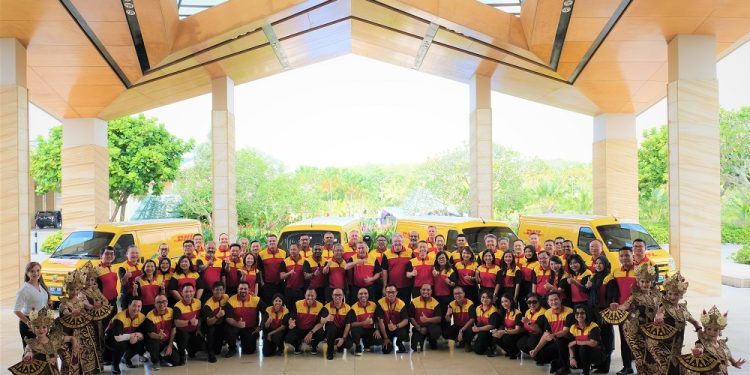DHL Express, the world’s leading international express service provider, has geared up to electrify its last-mile delivery fleet with the deployment of 24 electric vans in Jakarta and Bandung. These electric vans will eliminate 177 tons of carbon emissions yearly.
The introduction of the new e-vans underscores the company’s commitment to paving way for more sustainable operations, and contribute to climate protection. Currently, there are four electric vans and six electric bikes serving areas in Jakarta and Surabaya.
John Pearson, CEO of DHL Express said, “According to the Climate Transparency Report, the transportation sector contributed to almost 24.9% of the total carbon emission in Indonesia in 2021. As the backbone of the economy, the logistics sector has a responsibility and a role to play in reducing carbon footprint.”
“DHL has a clear roadmap to achieving that and will not cease to identify new and available solutions to support our mission. This means taking real action and working with like-minded partners to help us drive our sustainability targets.”
Ken Lee, CEO, DHL Express Asia Pacific, said, “More than ever, we are focused on cleaner and greener operations. This encompasses all our processes from loading the planes to route-planning for our couriers. Today’s EV fleet expansion in Indonesia and our latest service offering, GoGreen Plus, which enables customers to reduce carbon emissions through insetting, show that we are making significant progress in sustainability.”
Ahmad Mohamad, Senior Technical Advisor, DHL Express Indonesia said, “The new electric vehicles are simply the start of our journey to protecting the Earth for future generations. In the coming years, we will continue to transition our fleet to electric vehicles and make them available in other cities as well. Additionally, we will also invest in other low-carbon solutions, such as e-trucks and solar panels for our facilities in Indonesia.”
As announced in its Sustainability Roadmap, Deutsche Post DHL Group will invest a total of EUR 7 billion until 2030 in CO2 reduction measures. This includes electrifying 60% of the last-mile delivery fleet across the group.












